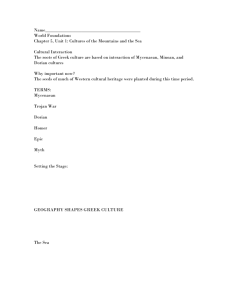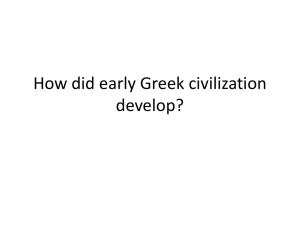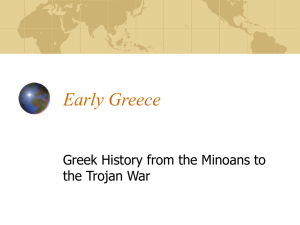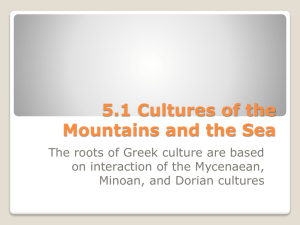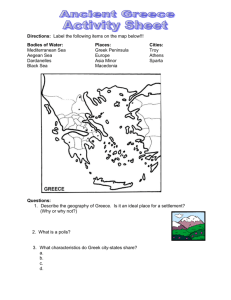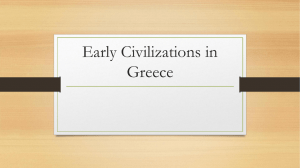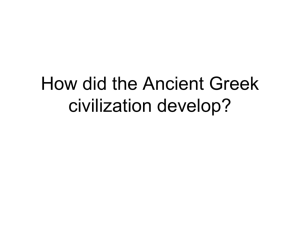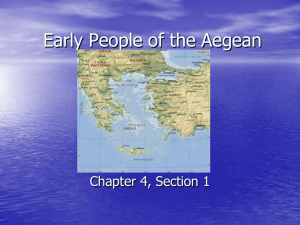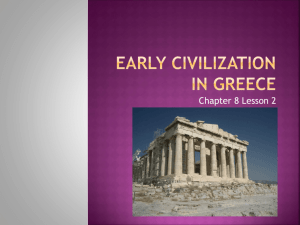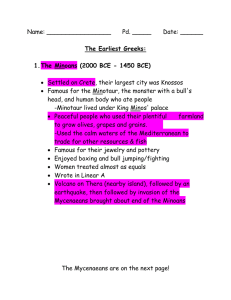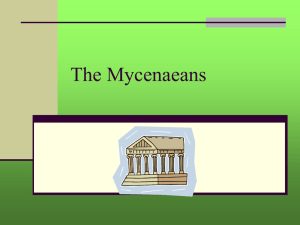File
advertisement
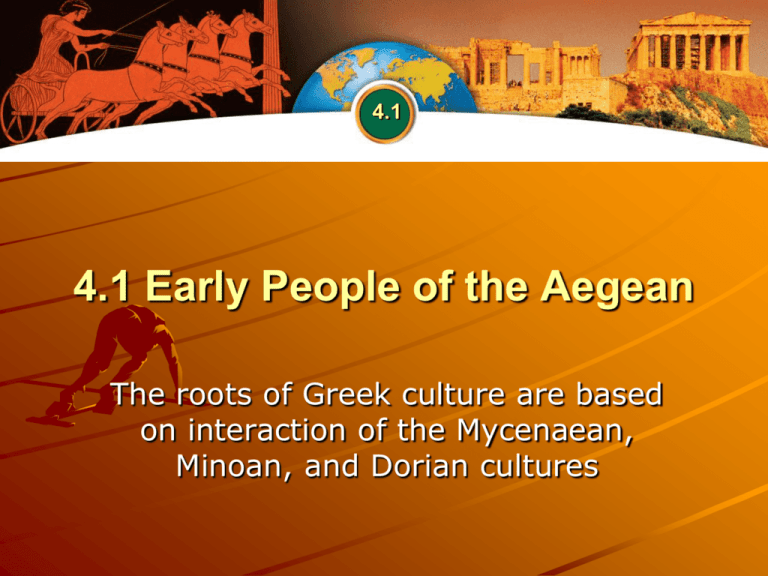
4.1 4.1 Early People of the Aegean The roots of Greek culture are based on interaction of the Mycenaean, Minoan, and Dorian cultures Geography Shapes Greek Life – Ancient Greece Collection of separate lands where Greekspeaking people live Includes mainland and about 2000 islands – The Sea The sea shapes Greek civilization Proximity to sea, lack of resources encourage sea travel and trade Minoans Trade and Prosper Between 1600 B.C. and 1500 B.C. Called Minoans after Minos, legendary king of Crete Knossos- considered Europe’s oldest city. Trade Little is known Disappeared around 1400 B.C. Macedonia Mt. Olympus Aegean Sea . Troy . . . . . Asia Minor Delphi Olympia Athens Corinth Sparta Mediterranean Sea Crete . Knossos Mycenaean Civilization Develops Eventually overran the island of Crete after taking the mainland of Greece 1400 B.C. to 1200 B.C. Became traders as well The Trojan War – Trojan War – fought by Mycenaeans against city of Troy in 1200s BC – Once though to be fictional, archaeological evidence has been found Greek Culture Declines Under the Dorians Epics of Homer – Oral tradition grows, especially epics of Homer – blind storyteller – Epic – a narrative poem about heroic deeds – Homer’s Epic the Iliad, about Trojan War, shows Greek heroic ideal – Odyssey- story of Odysseus and his struggle to get home after the Trojan War. Greek Culture Declines Under the Dorians Dorians Replace Mycenaeans – Mycenaean civilization collapses around 1200 BC – Greek-speaking people move into Greece – Less advanced than Mycenaeans, Dorians leave no written records – People forget about art and many skills – Trade declines Greek Culture Declines Under the Dorians Greeks Create Myths – Greeks develop their own myths – traditional stories about gods – Greeks seek to understand mysteries of life through myths – Greeks attribute human qualities – love, hate, jealousy – to their gods – Zeus, ruler of Gods, lives on Mount Olympus with his wife, Hera – Zeus’s daughter Athena is goddess of wisdom and guardian of cities
